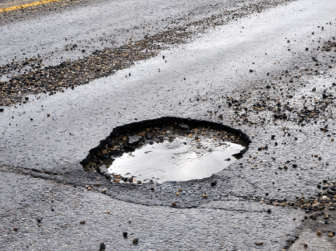The ability to drive is not just about getting from point A to point B – it's about independence and freedom, and for many elderly drivers, it’s a way to remain an active part of the world. For senior citizens, the goal is to drive as long as it’s safe to do so, ensuring not just their own well-being but also the safety of fellow motorists.
In South Africa, there's no specific age limit for driving. However, as we age, changes in reaction times and vision are natural. Driver's licenses must be renewed every five years, and this includes an eye test, ensuring that your abilities behind the wheel are in line with safety standards.
As you age, joints might get stiff and your muscles may weaken. Arthritis, which is common among older adults, might affect your ability to drive. Certain vehicle adaptations (see below) can assist with this. As your hearing changes, you might struggle to hear sounds like sirens or hooters from outside your car or even sounds from your car.
Ensuring safety behind the wheel is critical for elderly drivers. Whether it's maintaining your car, embracing new safety technologies, or considering vehicle adaptations, here's a roadmap to safe driving for our seasoned drivers.

Maintaining your car is a vital aspect of road safety. Regular servicing keeps brakes, tyres, and crucial components in optimal condition, reducing the chances of unexpected breakdowns on the road.
Investing in a Maintenance Plan ensures that your vehicle receives regular check-ups, addressing potential issues before they become hazards. It also helps avoid any big surprise bills when it comes to car repair. An important bonus of a Maintenance Plan through MotorHappy is that it comes with free roadside assistance. If anything does happen when you’re out on the road, you can trust that you will be able to get help quickly and efficiently. Find out more about a Maintenance Plan through MotorHappy.

Modern cars are equipped with an array of safety features designed to assist drivers, especially those who might benefit from additional support. Technologies like collision warning systems, adaptive cruise control, and lane departure warnings can be invaluable for elderly drivers. These features act as a second set of eyes, alerting drivers to potential dangers and intervening when necessary, reducing the risk of accidents.

For elderly drivers, comfort and control are paramount. Certain vehicle adaptations can significantly enhance the driving experience. Cushions and seat pads provide extra support and comfort, while convex or multifaceted mirrors expand the field of vision, reducing blind spots. Steering wheel covers improve grip and ease the strain on hands. Additionally, hand controls offer an alternative way to operate the vehicle, allowing drivers to manage all functions without using their legs.

- If you have any concerns about your health and driving, speak to your doctor.
- Stay physically active because this will help you with flexibility and mobility.
- If you use them, always wear your glasses, contact lenses or hearing aids when driving.
- Try to avoid driving when you are stressed or tired.
- Don’t tailgate. Leave enough room between your car and the car in front of you.
- Plan your timing and your route. Avoid heavy traffic.
Driving is often synonymous with independence. By staying proactive with regular car maintenance, embracing new safety technologies, and considering vehicle adaptations, elderly drivers can continue to navigate South Africa's roads confidently and safely. Remember, it's not just about the destination—it's about the journey and ensuring that the journey is as safe as possible.
So, buckle up, embrace the road, and drive safely!
The new Nissan Magnite: A compact marvel
Used car shopping? Includes Extended Warranty, and other tips


